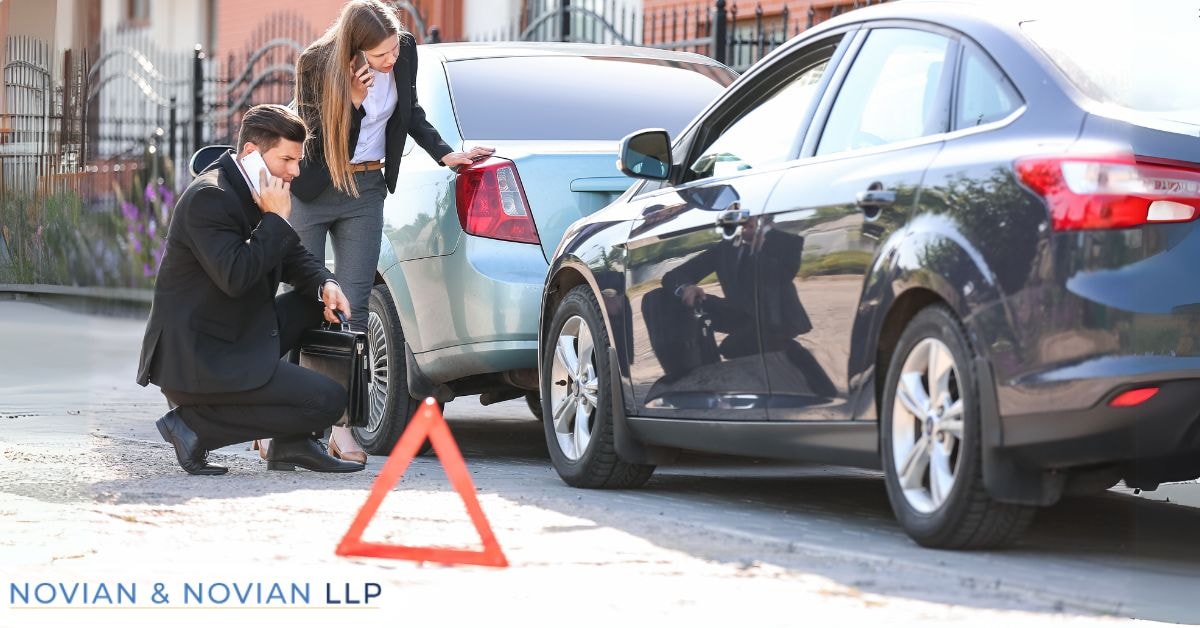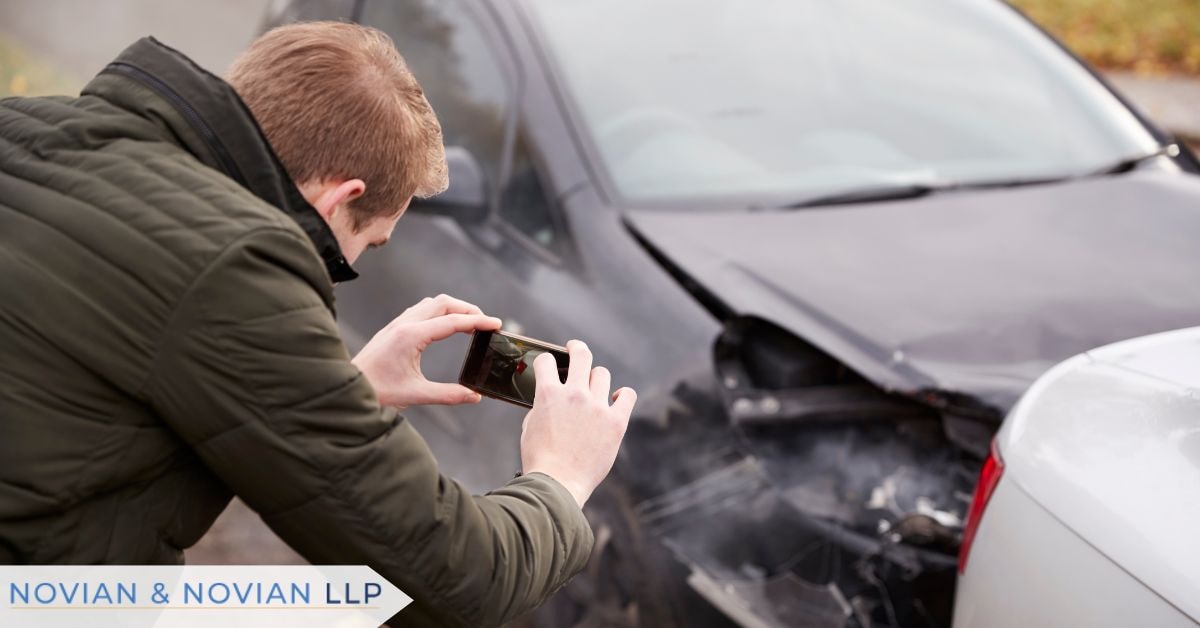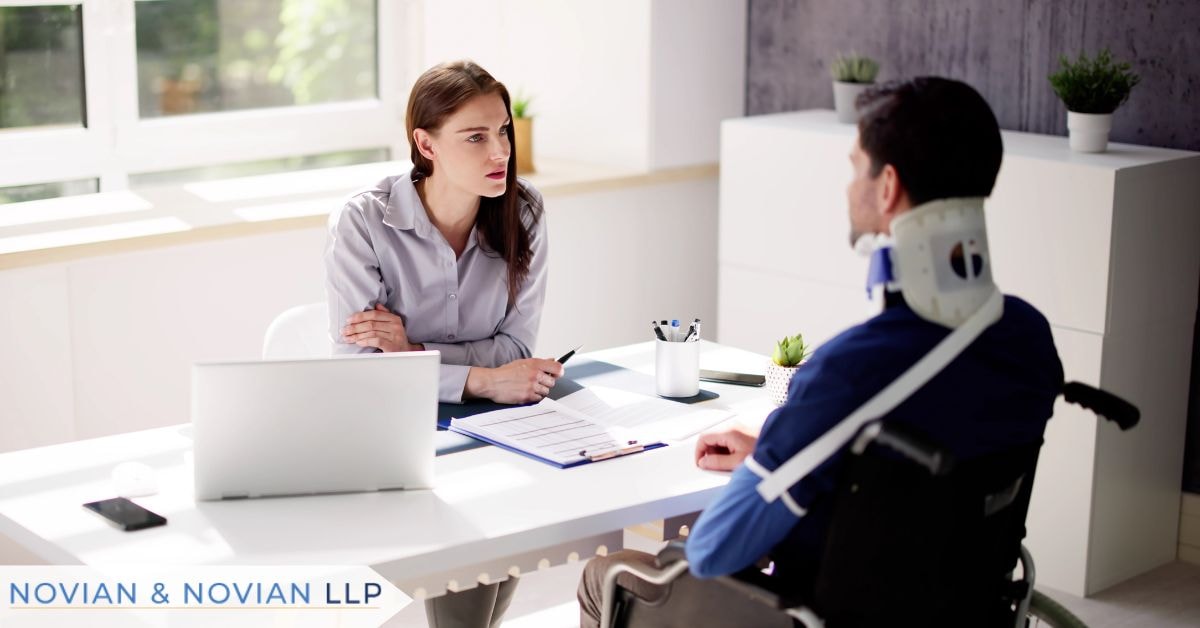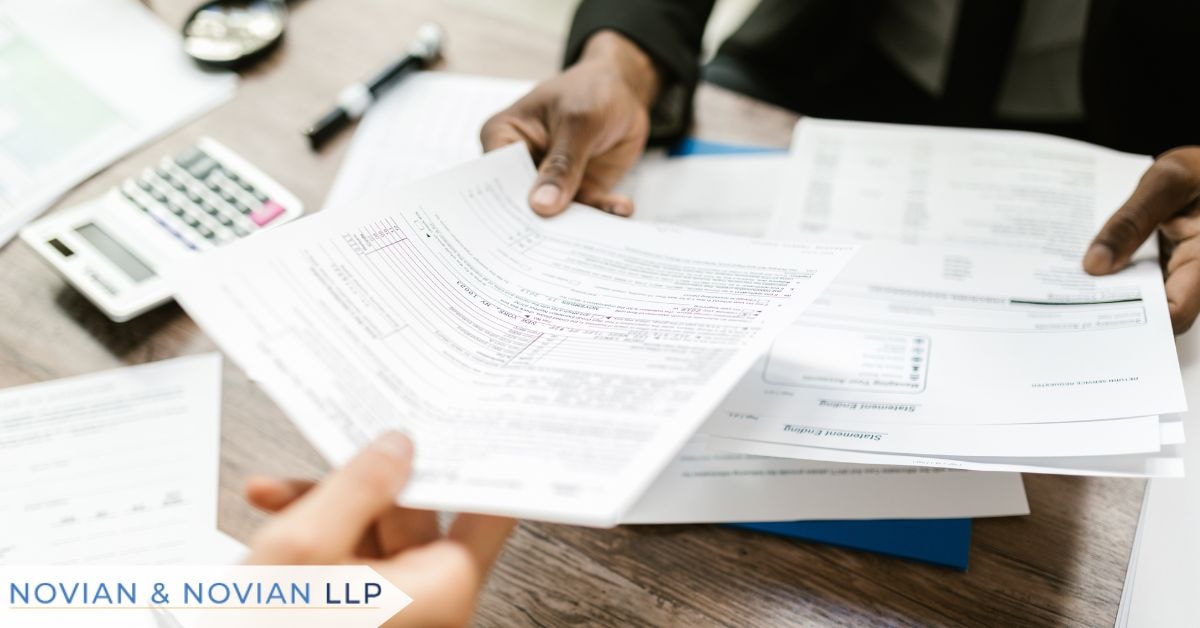
By Farhad Novian | Jan 20, 2025 | Catastrophic Injury
Rear-end accidents are among the most common types of car collisions. They often occur in heavy traffic, at stoplights, or in parking lots. These accidents can range from minor fender benders to serious crashes.
If you are rear-ended, stay calm and prioritize safety. Then, check for injuries and contact the police. You also need to report the accident by documenting the scene, seeking medical attention, and notifying your insurance company.
If you’ve been rear-ended and need help navigating the legal or insurance process, our experienced California personal injury attorneys at Novian & Novian are here to assist you. With over 35 years of experience, we specialize in cases involving catastrophic injuries. Contact us now for a free consultation to discuss your case.
This post will serve as a detailed step-by-step guide on what to do when you get rear-ended. It would also cover how to maximize your financial compensation after being rear-ended.
What to Do When You Get Rear-Ended?
Rear-end accidents are a common scenario on the road. It is often caused by distracted driving, aggressive driving, or failing to maintain a safe distance. These collisions can result in various injuries, from soft tissue damage to more severe conditions like cervical spine injuries, spinal cord damage, or traumatic brain injuries.
Here are steps to take to protect your rights and help you recover the compensation you deserve:
Ensure Immediate Safety
When a rear-end crash occurs, your first priority should be safety. Move your vehicle to a safe location, such as the shoulder of the road or away from traffic, if it is possible. Turning on hazard lights is essential to alert other drivers and prevent further accidents.
Furthermore, check yourself and your passengers for any injuries. If anyone is hurt, call 911 immediately for emergency medical care. Remember to stay calm and avoid escalating the situation with the other driver, as maintaining focus on safety and documentation is important.
Call Emergency Services
The next step is to contact the police, even if it is for a seemingly minor rear-end collision. A police report serves as valuable evidence and can be essential for dealing with insurance claims and legal disputes.
When the police arrive, provide a factual account of the accident without admitting fault. If possible, obtain a copy of the police report for future reference.
Even if you feel fine after the accident, seeking medical attention is necessary. Injuries such as whiplash, concussions, or neck pain may not show immediate symptoms but can have long-term effects.
Medical care not only ensures your health but also provides documentation for your insurance claims and legal cases. Therefore, keep all medical records and receipts as evidence of your injuries and treatment.
Document the Accident Scene
Proper documentation of the accident scene can significantly strengthen your case. Take photos of the damage to both vehicles, the surrounding area, traffic signs, and weather conditions.
Likewise, write down the time and date of the incident, as well as the other driver’s name, phone number, address, insurance company, policy number, driver’s license details, and vehicle registration. If there are witnesses, collect their contact information and statements, as they can provide valuable evidence in determining fault.
Contact Your Insurance Company
After documenting the accident, report it to your insurance company as soon as possible. When describing the incident, stick to the facts and avoid assumptions or admitting fault.
If you are unsure whether to contact your insurance or the other driver’s insurance company, consult a car accident attorney for guidance. They will help you understand your insurance coverage, including liability and uninsured motorist coverage. They will also help you navigate the claims process and recover compensation for vehicle damage and injuries.
Seek Legal Advice from a Rear-End Lawyer
In cases involving significant injuries, disputes over liability, or issues with insurance adjusters, consulting a personal injury attorney can make a difference. An experienced attorney can help you recover maximum compensation for medical expenses, lost wages, and other damages.
They can negotiate fair settlements, handle legal paperwork, and protect your rights in case of a dispute or lawsuit. If you’re considering filing a personal injury lawsuit, look for an attorney specializing in rear-end collisions who offers a free consultation.
How to Maximize Financial Compensation After A Rear-End Accident
Securing fair compensation after a rear-end accident requires careful steps to protect your rights and document the full extent of your losses. When dealing with the other driver’s insurance company, it’s important to minimize contact and avoid giving recorded statements. Insurance adjusters often aim to reduce payouts, so keep your interactions brief, professional, and focused on the facts. Let your personal injury attorney handle negotiations whenever possible.
Furthermore, avoid admitting fault at the accident scene or in conversations with the other driver, police officer, or insurance adjusters. Most rear-end collisions are caused by the trailing driver, but any statement suggesting shared fault could undermine your claim.
To ensure fair compensation for vehicle damage, obtain at least three repair estimates from reputable shops. This helps you counter lowball offers from the insurance adjuster and provides a more accurate assessment of the property damage.
Additionally, keep a detailed record of missed workdays, lost wages, and related documentation, such as pay stubs and employer statements. Lost wages can significantly impact the settlement amount, especially if the injuries result in long-term or permanent disability.
Compensation for pain and suffering also accounts for the physical and emotional toll of the accident. Injuries such as neck pain, spinal cord damage, or traumatic brain injuries may lead to ongoing discomfort or reduced quality of life.
How Much Compensation Can You Expect If You’re Rear-Ended?
The compensation you can expect after a rear-end accident depends on several factors, including the severity of injuries, property damage, lost wages, pain and suffering, and the at-fault driver’s insurance coverage.
Each case is usually unique. For example, in a case where the rear-end accident results in soft tissue damage and minor repairs, compensation might range between $5,000 and $15,000, depending on medical expenses and repair costs. However, if the collision causes spinal cord damage, multiple surgeries, or long-term disability, compensation could exceed $100,000, factoring in medical bills, lost wages, and pain and suffering.
Injuries such as soft tissue damage, spinal cord damage, or traumatic brain injuries significantly impact compensation. For example, a rear-end crash causing whiplash may result in a lower settlement than one causing permanent disability or requiring extensive medical treatment. Delayed symptoms, such as neck pain, should also be evaluated promptly.
The extent of vehicle damage also plays a role in determining compensation. Severe damage to your car may result in higher payouts than minor repairs. Ensuring thorough documentation of the accident scene and vehicle damage is essential.
Additionally, lost wages due to missed workdays or reduced earning capacity are crucial factors. For instance, if the injuries prevent you from returning to your job, the compensation should account for long-term financial losses. Non-economic damages like pain and suffering consider the emotional and physical toll of the accident. Serious injuries with prolonged recovery times or permanent effects often result in higher settlements.
Furthermore, the at-fault driver’s insurance policy limits can significantly influence the compensation amount. If the driver is uninsured or underinsured, your own insurance policy may provide additional coverage through uninsured motorist protection.
What Happens if You’ve Been Rear-Ended Without Insurance
Being rear-ended while driving without insurance can lead to several legal and financial consequences, even if the accident was not your fault. For example, driving without mandatory auto insurance is illegal in many jurisdictions and can result in fines, license suspension, or vehicle impoundment. For instance, in some U.S. states, fines for driving without insurance can range from $500 to $1,000, along with potential license suspension.
In addition, without insurance, recovering damages from the at-fault driver becomes more challenging. While you can file a claim against the other driver’s insurance for property damage and medical expenses, the process may be more complex, and you might not receive full compensation for your losses.
Furthermore, in the absence of your own insurance coverage, you may have to cover immediate expenses (out-of-pocket expenses). These include vehicle repairs and medical bills while awaiting any potential settlement from the at-fault insurer.
If there is any dispute about fault or if you are found partially responsible for the accident, not having insurance can leave you personally liable for a portion of the damages. This leads to significant financial strain.
Need Help After a Rear-End Car Accident?
A rear-end car accident can leave you feeling overwhelmed and uncertain about what to do next. It is always best to prioritize your safety, gather valuable evidence, and ensure you’re legally protected.
First, focus on immediate safety by moving to a secure location, assessing injuries, and calling emergency services if needed. Document the scene thoroughly by taking photos, gathering witness statements, and obtaining a copy of the police report. When dealing with insurance companies, stick to the facts and avoid admitting fault.
For those seeking fair compensation or struggling with the legal complexities, consulting an experienced personal injury attorney can make all the difference. A skilled lawyer can help maximize your claim, negotiate with insurance companies, and protect your rights, especially in cases involving serious injuries or disputes.
Whether you need advice on your claim or representation in a personal injury lawsuit, Novian & Novian can help you. Our personal injury attorneys in California offer expert legal assistance tailored to your situation. Contact us today for a free consultation.
Contact Us
Have questions about this post? Novian & Novian is a full service law firm in Los Angeles with clients that span the country. Contact us today for a free consultation.
Contact Us
Have questions about this post? Novian & Novian is a full service law firm in Los Angeles with clients that span the country. Contact us today for a free consultation.





